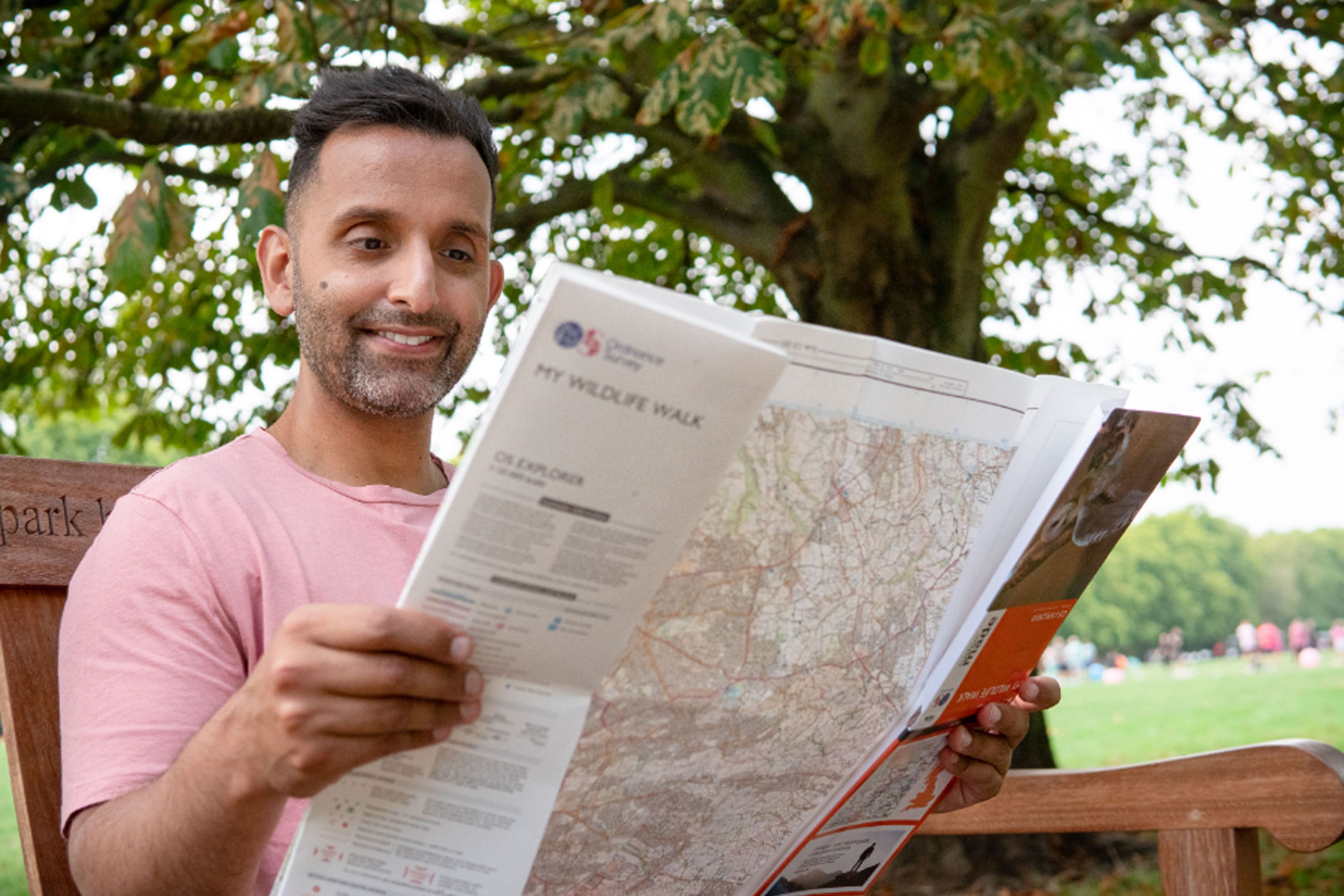TV’s Dr Amir Khan on the power of ‘green prescribing’
The GP and telly doctor explains why nature-based activities are vital for mental and physical health. By Abi Jackson.

Your support helps us to tell the story
From reproductive rights to climate change to Big Tech, The Independent is on the ground when the story is developing. Whether it's investigating the financials of Elon Musk's pro-Trump PAC or producing our latest documentary, 'The A Word', which shines a light on the American women fighting for reproductive rights, we know how important it is to parse out the facts from the messaging.
At such a critical moment in US history, we need reporters on the ground. Your donation allows us to keep sending journalists to speak to both sides of the story.
The Independent is trusted by Americans across the entire political spectrum. And unlike many other quality news outlets, we choose not to lock Americans out of our reporting and analysis with paywalls. We believe quality journalism should be available to everyone, paid for by those who can afford it.
Your support makes all the difference.When it comes to sharing advice with his patients, TV’s Dr Amir Khan is all about walking the walk. Or in his case – running the run.
“I go for a run every morning before work,” says Khan, who regularly appears on ITV’s Good Morning Britain and Lorraine shows and is a GP in inner-city Bradford, where he grew up.
“I’m very lucky because where I [now] live in Yorkshire, we’ve got parks and fields I can run through. I’m a full-time GP – it’s a very busy, very stressful job, particularly now with the demands put on the NHS, but running helps clear my mind.
“It sets me up for the day. I’ve got that boost of serotonin at the start of the day, and that’s going to see me through.”
Wildlife encounters are an added bonus for the British-Asian doctor, whose 2020 book – The Doctor Will See You Now: The highs And lows Of My Life An An NHS GP – became a Sunday Times bestseller.
“I see badgers, foxes and deer and sometimes when I go out at dawn, I can see owls. I come back absolutely buzzing,” he enthuses.
“I think that is amazing. Because I grew up in inner-city Bradford, where we didn’t have a garden, we didn’t have access to these things, I only really saw these animals in books, and now to be able to see them in real life is incredible. Everybody should be able to have that buzz.”
Making nature accessible – and highlighting its many health benefits – is important for Khan. Already an ambassador for The Wildlife Trusts, he has recently been named as a GetOutside Ambassador for Ordnance Survey, Britain’s national mapping service.
“It’s very exciting, and really in keeping with the stuff I talk about,” says Khan, who is very keen on social and green prescribing – the idea of healthcare professionals ‘prescribing’ things such as walking in nature, or joining a community group, to help people manage their physical and mental health.
 Khan works as a full-time GP alongside his TV career (Amanda Allen Photography/Handout/PA)
Khan works as a full-time GP alongside his TV career (Amanda Allen Photography/Handout/PA)
“I think it’s really important,” he says, pointing out that this isn’t meant to be a replacement for other forms of therapy and treatment, but a part of the picture that’s perhaps been missing.
“Social prescribing and general prescribing actually go hand-in-hand. It’s not an either/or situation – it’s something we generally bolt on to other options. It’s that kind of holistic approach to patient care, whether it’s physical or mental health we’re looking after – I think for too long it was just a case of, ‘Right, here are some pills’, or ‘Here’s some talking therapy’ and let’s see how you get on.
“Green prescribing falls under that umbrella of social prescribing, plugging people into local green activities or outdoor activities, or simply being outdoors – if we feel, and the patient feels as well, that it will improve their mental health.
“Particularly now, because mental health is so prevalent with the cost-of-living crisis and everything that’s going on, on the back of a very stressful pandemic for everyone. I think everybody’s feeling the pressure and stress.”
Khan acknowledges managing mental health can be “nuanced” and like all things, green prescribing is not one-size-fits-all. One thing he is keen to get across, though, is that the health benefits are rooted in robust evidence.
“It’s not just a case of, ‘Oh well, go for a walk and you’ll feel better’. It’s about the science behind it. Spending time outdoors, whether you’re walking or whatever activity, has been proven to be good for your mental health. For example, one of the things that goes up when feeling anxious or stressed is your cortisol level – your stress hormone – and going outside and connecting with nature helps bring that down.
“And one of the things we know happens in depression and low mood is your serotonin levels drop, but going outdoors, and being mindful and present in nature has been shown to increase serotonin.”
Being present is key. You won’t get the same benefits if you’re “just scrolling on your phone”, Khan adds. “It’s really about quality time that leads to us connecting with the outdoors. Listening and hearing and feeling all the things that are going on around you.”
Of course, anyone can tap into the benefits of spending time in nature, and you don’t need to wait until a GP suggests it. For Khan though, it’s important that conversations about the outdoors are inclusive.
“People who spend the least time in nature, stand to benefit from having time out there the most. That’s the important thing, because often when I’m talking about green prescribing and spending time in nature, I feel like I’m preaching to the choir all the time,” he reflects.
Khan wants everyone to feel “they have the authority to go out and see it for yourself” – but part of this is making nature accessible for people who may face barriers, whether that’s poverty, disability, living in a very urban area or being from an ethnic group that’s traditionally been underrepresented in the outdoors.
This is where free community groups can be especially helpful, which can also help combat loneliness. “That’s a big thing,” notes Khan. “A really big part of what we do as family doctors is managing social isolation. And people can feel lonely and isolated whether they live alone or not – it’s quite a complex situation, that idea of loneliness. So getting involved in group activities is beneficial.”
And even Khan – a dedicated outdoor enthusiast – can relate to the feeling of imposter syndrome the outdoors world can sometimes bring up.
“Oh gosh, I feel like that even now – you know, I go out, I haven’t got half the equipment, I don’t wear the things that you’ve probably supposed to wear! But it’s not about that, it’s about going out there.
“And when I go out with my mum, she’s an older lady and she’s got arthritis and type two diabetes and she’ll be in full Asian dress. But we’re getting the health benefits, so it really doesn’t matter how you dress, who you are, what your background is.
“Nature doesn’t discriminate, it is there for everyone. I certainly don’t care about how I look out there.”
For more information about Ordnance Survey, see ordnancesurvey.co.uk